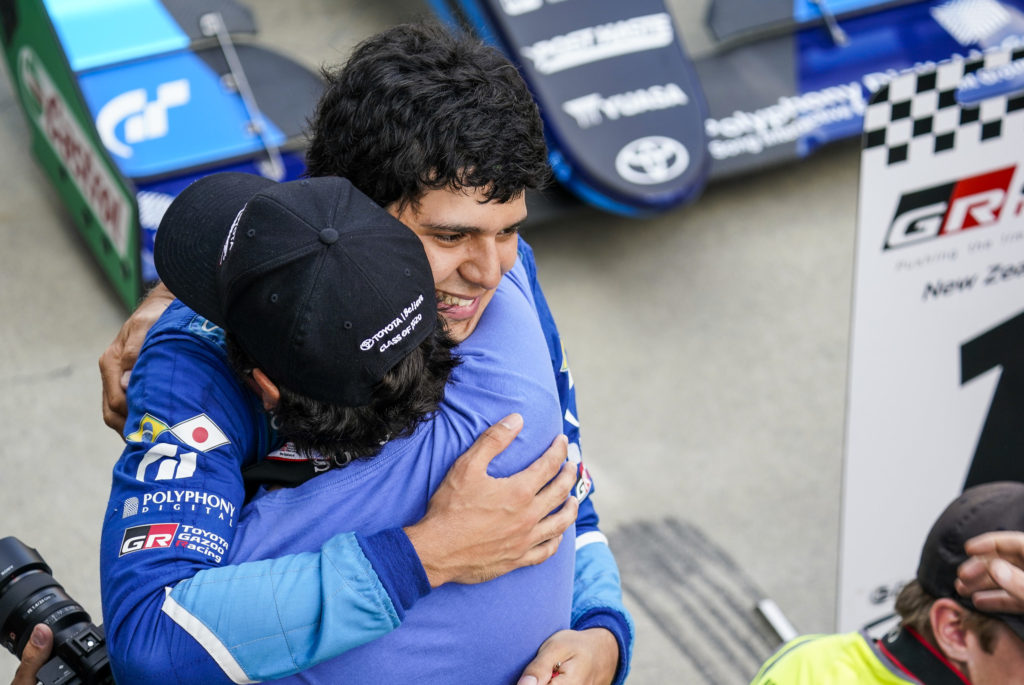Considered as one of the world’s most complete sim racer, Igor Fraga has immediately made a substantial impact upon New Zealand’s Castrol Toyota Racing Series. The Japanese born yet Brazilian raised e-sport sensation has proven how consistency in results is the prerequisite for success after finding himself leading the TRS championship with only two rounds remaining. That is all despite only claiming his inaugural win in the series last weekend at Hampton Downs, three rounds into the championship calendar.
A storming drive from third to victory in race one was then superseded by a dominant lights to flag victory in a feature race marred by incidents. Fraga is quickly becoming the first true global superstar to have utilised a background in sim racing as a precursor for on-track success.
The world of virtual reality and computer-aided racing sims have expanded drastically within the last decade. Previously it was reserved for top tier Formula One teams to train drivers and experiment a myriad of base setups. Modern era sims not only offer a seemingly transparent correspondence with real life but are also cheap and mobile enough to be operated within private households.
Fraga’s car livery puts his recent e-sport accomplishments firmly in the spotlight. The black and blue design incorporates an array of Gran Turismo stickers after Fraga himself won the 2018 FIA Gran Turismo Nations Cup before dominating the McLaren Shadow e-sport competitions.

Fraga’s current run of form so far in the TRS series is truly demonstrative of how future motorsport luminaries may be bred in the form of computer-generated simulation, as opposed to the more traditional route of karting and junior formulae. His race starts have been impeccable and the maturity suggested under the helmet to control the race and his rivals have allowed Fraga to enjoy success so far in the 2020 TRS season.
Current McLaren F1 driver Lando Norris has also displayed an outgoing interest and enthusiasm about the unlimited possibilities sim racing offers potential racing drivers. Norris commented in a recent interview with TheLoadout.com how in sim racing “You have to focus on doing everything properly like looking at your setup, your data, looking after your tyres, race management, all of this stuff quickly becomes quite real.”
For Fraga, he believes that sim racing holds a value that is perhaps currently undermined by current drivers. He describing how sims teach the importance of how to win without team nor engineer support; the independent skill-set learnt on a sim giving the driver an excellent back draw of priceless intel about car setup and handling.

It eventually seems that sim racing will become a criterion for future generations before being promoted into the main game. For some, this realisation may come at some degree of disgrace. After all, it superficially looks like a load of children playing a video game for unhealthy lengths of time. However, Igor Fraga’s current TRS success story is little but a preshow for what is to come.
Since only 2018, there has been an emergence of a multitude of international, high profile sim racing competitions. Factory race teams from BMW, McLaren and Porsche have expanded their abundant supply of resources to fund fully backed sim racing teams and drivers in anticipation of future on-track achievement.
The world is well and truly becoming more and more digital. While motorsport will always be at the forefront of a world where driver talent and engineering prowess on-track is celebrated over sim racing success, nonetheless sim racing is beginning to habitat itself in a position where its value is no longer overlooked.




Comments